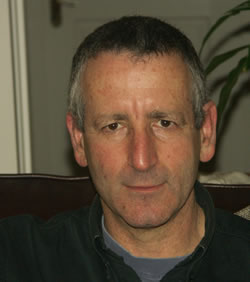|
Shortly after the Oscar prizewinner jumps up for the first triumphant kisses and hugs, the camera tracks to the four losers, pausing briefly at each one. Their expressions of bemused superiority, open disappointment, abstracted gladness for someone else—their glazed eyes, their aura of loss—are integral to the spectacle. The blood they've spilt, that now puddles at their feet, is a vital and intimate contribution to the triumph of the winner.
Literary awards do not get global television audiences, and the level of spectacle is less overwhelming. However, a similar dynamic usually applies—there is a winner and several losers, and the decision is released at a high profile event. It is an oddity of my writing career that I have been shortlisted for about a dozen literary awards, and have won roughly half that number. One of these close calls was the Caine Prize for Writing in Africa. The climactic moment was a dinner in the Bodleian Library at Oxford University, which took place in a heat wave, and followed an intense and exhausting week of interviews and colloquia, readings, lunches (including one in the House of Lords) and dinners. There was no shortage of alcohol at the time either. The winner turned out to be Yvonne Adhiambo Owuor, a young Kenyan writer. She won the Caine Prize for the first short story she had ever published. Yvonne generously insisted that all five nominees come to the podium with her, declaring that the prize was for all of us, and not just her. We complied, somewhat dazed, trying to internalise the fact of loss and keep some kind of face on it. Then she propelled me to the microphone, urgently whispering to me to say something. I don't recall what I said – I know it started with "Good evening, ladies and gentlemen"—but it seemed to go off alright, and I retreated as swiftly as possible and gave the microphone back to Yvonne. I do recall the ride back to London late that night in a Mercedes bus, Yvonne talking excitedly on her mobile, the rest of us sitting in glum silence.
The moment captures a schism that runs through my life as a writer. It is the difference between public and private self. I don't mean the public self in the obvious sense, one who appears in public, talks, grins, reads and signs things. I mean the person who has to deal with hostile reviews, rejection slips, sometimes disappointing sales, and near misses. To do that demands the cultivation of a thick skin, or some kind of thickening of the skin you have. The problem is that to write poetry, short fiction, novels—which is what I write—you need to be a thin-skinned observer. The membrane between yourself and the world has to be permeable and soft, flexible, prone to tear.
This difference is linked to the coilspring of my writing in the first place, which is that I grew up feeling mute about life. Things happened to me in childhood, I did things, without feeling that I was really there. Somehow, in ways I cannot explain, this turned into a driving force that led me into writing, into the articulations of fiction, and with it the creative and monstrous and liberating lies you can work into the medium, remaking the world in ways it should and shouldn't be. This muteness, I believe, this unprepossessing silence, still underlies my work as a writer. The verbal noise I produce therefore comes from its opposite. It is this mute person, still present, who struggles to deal with the troublesome material causes and effects of the industry.
I have no advice for aspirant writers, or experienced writers, or anyone else. If I could handle the gap between the marvellous creative life of writing, with its freedom and astonishing interest, and the sustained, sometimes bruising encounter with matters of publication, distribution and reception, I would probably be dispensing advice right now, in this very article. (If you've worked it out, please drop me a line.) However, what I can do is live with this schism, accept it as part of any artist's life. I can use the pain and disruption it sometimes causes to drive my creative work. At times it looks and feels like some kind of freak accident, but it's really an energy source, if only you can find a way to tap into it. Think of the abyss as a windfarm, and your tumble into freefall as a generator.
|


